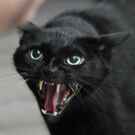Talk:Disney wrongful-death lawsuit
I believe that this stub has language that is too complex for its purpose to explain the information to a general audience. More specifically, the sentences are long; while this does lead to including more information in fewer total words, it makes it more difficult to read. The current (today is Jan 18 2025) average word count of this stub is 24 words per sentence. I recommend the language be edited to reduce this average to fewer than 20. This may sound like a small and difficult change, but I believe it will make this information much more accessible to the public. I submit this comment as a potential example of a text with a more suitable average.
A possible edit to improve readability
The following is unlikely to have the cite notes placed correctly as no attempt was made to do so. The language here is recommended to improve readability. I am no expert and many of these changes may make readability worse. Today is Jan 18 2025.
In a wrongful death lawsuit, Jeffrey Piccolo sued Walt Disney Parks and Resorts. His wife had died from a severe allergic reaction at a restaurant in Disney's EPCOT theme park. The lawsuit claims Disney was negligent in managing food allergens and this contributed to her death.[1] However, Disney attempted to have the case dismissed by sending it to arbitration, citing a Disney+ user agreement. Piccolo signed this agreement in 2019 when he subscribed for a one-month long free trial. This agreement includes a clause requiring arbitration for disputes with the company. Disney stated that they neither owned nor operated the restaurant and were merely defending themselves against inclusion in the lawsuit.
Disney argued that, because Piccolo had subscribed to Disney+ (even for a free trial), he was bound by the arbitration clause to all of the Disney company, not only Disney+. This sparked significant backlash as over 150 million Disney+ subscribers could similarly be barred from filing any lawsuit against any part of the Disney company. In response to the criticism, Disney withdrew its motion and allowed the case to continue in court.[2]
